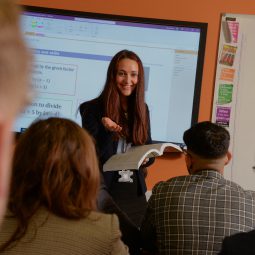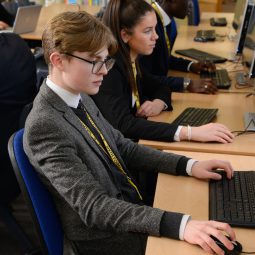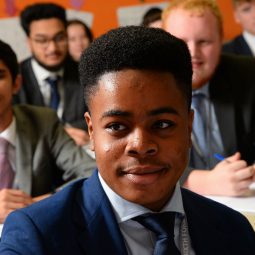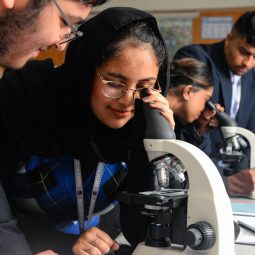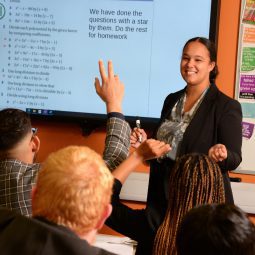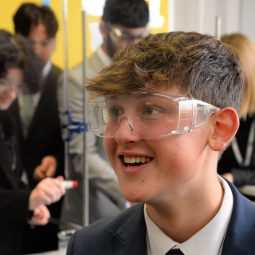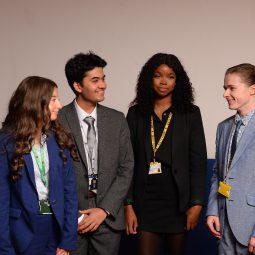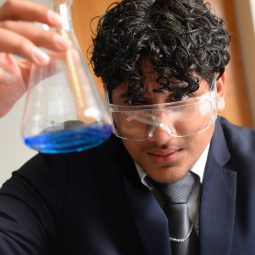Sociology
Sociology (AQA)
Sociology is a challenging and exciting discipline, and its aim is to understand how societies work. It investigates the structures and cultures of different societies throughout the world and throughout history.
You’ll be looking at culture, education, religion and crime, and you’ll probe beneath the surface of society to find out what is actually going on.
At the centre of the course is the search for how our identities formed, and how aspects of our identities such as class, gender and ethnicity affect our lives.
Course Content & Assessment
Module 1: Family and Households
Students will examine the relationship of the family to the social structure and social change, with particular reference to the economy and state policies.
They will study the changing patterns of marriage, cohabitation, separation and divorce and the consequences of family diversity on society.
The nature and extent of changes in gender roles will be examined focusing on the domestic division of labour and power relationships within the family.
Module 2: Research Methods
The research methods unit looks at the different ways in which sociologists can study society including observations, experiments, questionnaires, interviews and secondary sources such as official statistics.
Module 3: Education and Methods in Context.
Students will examine the role and purpose of education including vocational education and training, in contemporary society. They will consider differential achievement of social groups by social class, gender and ethnicity. Issues to examine also include the relationships and processes within school and the significance of state policies, including selection, comprehensivisation and marketisation, for an understanding of the structure, role, impact and experience of education. Students will also look at the application of sociological methods to the study of education including observations, questionnaires, interviews and their relevant advantages and disadvantages.
Module 4: Beliefs in Society.
Students will examine ideology, science and religion including both Christian and non-Christian religious traditions. The relationship between social change and social stability and religious beliefs, practices and organisations. Also identifying religious organisations, including sects and cults and New Age Movements and the relationships that these organisations have with different social groups and religious / spiritual movements. Students consider the nature and extent of secularisation in a global context, and globalisation and the spread of religions.
Module 5: Crime and Deviance
Students look at different theories of crime and deviance, social order and social control. The social distribution of crime and deviance, social order and social control- also identifying patterns across gender, class and ethnicity. Students also look at the impact of globalisation, including state and green crime, human rights and the media. The role of the criminal justice system is also examined as well as surveillance, prevention and punishment.
Module 6: Theory, Debates and Methods
Students re-cap on the research methods they covered in earlier modules and then build on this further and focus on the key theories functionalism, Marxism, feminism, interactionism, postmodernism, social policy and objectivity and values, also questioning whether sociology is a science.
Teaching
There will be a range of different methods of teaching from teacher led, group work, pair work, independent research and presentations. Your teachers are passionate about their subject and will do their utmost to engage and enthuse you. Sociology is an academic subject – you will be both challenged and well supported throughout the course.
Your Future
Sociology is an interesting academic subject in its own right. It provides an excellent foundation for a wide range of degree and vocational courses. As such an A level in Sociology provides an excellent background for careers in journalism, the caring professions, teaching, management and the police.
The Blue Coat Sixth Form is proud to be part of the Cranmer Education Trust
Cranmer Education Trust is a company limited by guarantee and an exempt charity registered in England. Company registration number: 07687709. Registered Office: Cranmer Education Trust, c/o The Blue Coat School, Egerton Street, Oldham OL1 3SQ. The website address is www.cranmereducationtrust.com and the phone number 0161 785 5082.

